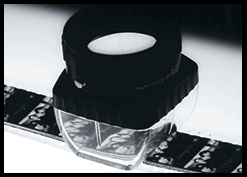GME DVD Distribution – Two American Film Noirs Now Available on Blu-ray / DVD for North American Institutional Sales
/In order to further academic interest in genre studies, Gartenberg Media Enterprises is proud to introduce Blu-ray/DVD combo pack editions of a pair of lesser-known film noir movies, TOO LATE FOR TEARS (1949) and WOMAN ON THE RUN (1950).
◊
“WOMAN ON THE RUN is a love story told in reverse. This couple have no use for each other at the start and then they fall back in love, even though he’s missing and they don’t reunite until the end.”
– Eddie Muller, President of the Film Noir Foundation
This 1950 film noir, the only American print of which was burned in a 2008 fire, has been rescued and restored to its original luster by the Film Noir Foundation in conjunction with UCLA Film & Television Archive, with special thanks to the Hollywood Foreign Press Association’s Charitable Grant Trust and the British Film Institute.
“Shot largely among the gritty working class landscapes of mid-century San Francisco, WOMAN ON THE RUN spotlights Ann Sheridan as an acerbic wise-cracking wife in search of her estranged husband who suddenly disappears after witnessing a gangland assassination. After suffering through a series of disappointing roles at Warner Bros., Sheridan bought out her remaining contract and turned to the upstart independent Fidelity Pictures in an attempt to re-establish her career as a leading lady. The resultant film was WOMAN ON THE RUN…
Director Norman Foster, a former protégé of Orson Welles [also had directed a series of the Charlie Chan and Mr. Moto murder-mystery genre films of the 1930’s and 1940’s. He] had just returned to Hollywood after helming a successful strong of features in Mexico and captured the anxiety-driven mood of Alan Campbell’s screenplay with seemingly effortless dexterity. The Bay Area location filming – in addition to the opening sequence shot in Bunker Hill and the dramatic climax staged at the Santa Monica pier – was beautifully shot by esteemed cinematographer Hal Mohr and adds atmospheric realism to the production that studio-bound efforts of the era could not hope to match.”
– Steve K. Hill, UCLA Film & Television Archive
◊
“The best un-known American film noir of the classic era.”
– Eddie Muller, President of the Film Noir Foundation
Rescued and preserved after a five-year effort by the Film Noir Foundation, this 1949 production is at long last available in a clean digital version, transferred from a 35mm print painstakingly restored by UCLA Film & Television Archive.
“After 17 highly successful years as one of MGM’s most successful producers (the THIN MAN series, the Jeannette MacDonald & Nelson Eddy operettas, etc.), Hunt Stromberg left the studio to produce a series of smaller budget films with his own independent production company…Adapted by author Roy Huggins from his novel that was serialized in the Saturday Evening Post, TOO LATE FOR TEARS was one such production. It was also Stromberg’s last independent film before retiring in 1951.
Between his extensive and award-winning stint in the special effects department at Warner Bros. and directing a series of widely successful science fiction and adventure films throughout the 1950s and 1960s, Byron Haskin competently helmed a few noir titles in the late 1940s. When handed the script for TOO LATE FOR TEARS, Haskin immediately thought of the sultry and alluring Lizabeth Scott whom he recently directed in I WALK ALONE (1948). Unlike the pervious film, where Scott took a back seat to the flamboyant performances of Burt Lancaster and Kirk Douglas, TOO LATE FOR TEARS provides Scott with the meaty role of frustrated housewife Jane Palmer, whose married life careens out of control with murderous greed when a suitcase filled with $60,000 is accidentally “tossed” to her and husband Alan (played by Arthur Kennedy). Beyond the fantastically theatrical turn by Scott, the production highlights an exceedingly devious performance by another noir icon, Dan Duryea.
Lizabeth Scott and Arthur Kennedy in TOO LATE FOR TEARS
Although coolly received by audiences initially, this seemingly minor noir has gained quite a cult following in recent years. Modern audiences now recognize it as a darkly satisfying and atmospheric meditation on the covetous societal and materialistic ambitions of postwar middle-class America.”
– Todd Weiner, UCLA Film & Television Archive





